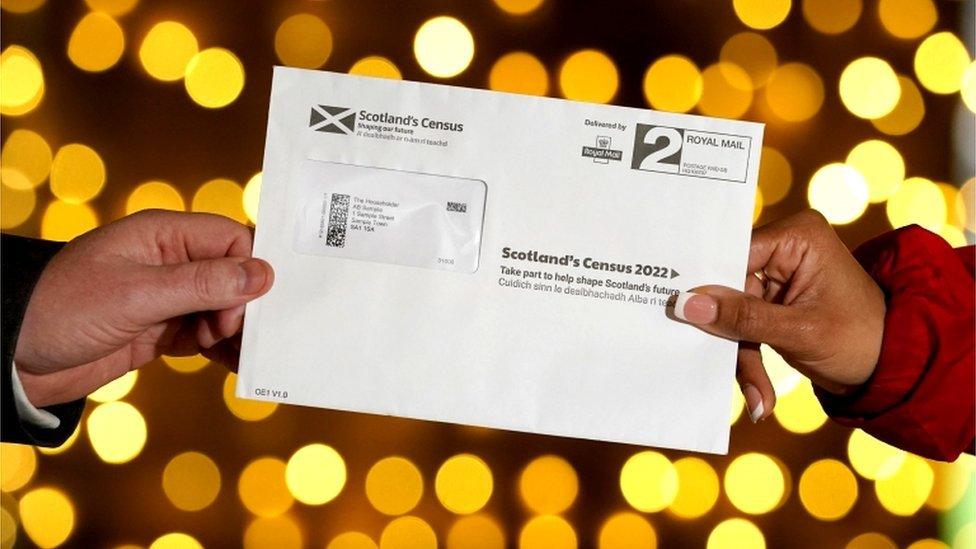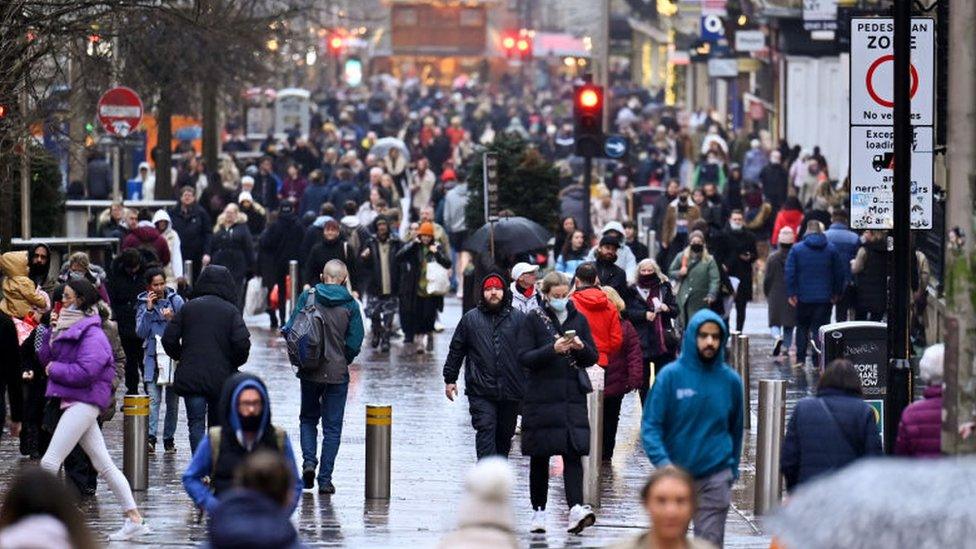'Lessons learned' review into census problems
- Published

Scotland's census is to be subject to a "lessons learned" review, after struggling to achieve its target participation.
The survey, usually held every 10 years, is an important tool for policymakers - but had a lower return rate than in other parts of the UK.
The deadline had to be extended before it finally achieved 89% participation.
National Records of Scotland (NRS) said the census cost £140m, slightly lower than the previous estimate .
This survey was Scotland's first census held mainly on digital platforms, with more than two million households filling it in online and 250,000 returning a paper copy.
England and Wales held their survey in 2021, with a 97% completion rate. The previous Scottish census, in 2011, achieved 95% participation.
However, the Scottish government delayed the latest one by a year because of the Covid pandemic, and by the initial deadline of April 2022 it had only achieved an average return rate of 79%.
Some experts suggested that decoupling it from the census in other parts of the UK may have resulted in less publicity and awareness.
Last year Audit Scotland called on NRS to establish why Scotland's initial return rate was so much lower than in other parts of the UK.
Extending the deadline by a month also added an extra £6m to the overall cost.
'Nationalistic belligerence'
The Lib Dems, who obtained the latest cost estimate using freedom of information laws, said the "botched" census would impact the delivery of government services for years to come.
Lib Dem MSP Willie Rennie said: "The auditor general warned that this led to increased costs and additional work.
"Taxpayers have ended up paying far more for fewer people to respond.
"Ministers made significant changes including moving the census online and getting out of sync with data collection elsewhere in the UK.
"Then they refused to learn any lessons out of nationalistic belligerence."

Officials have previously said that robust data could still be produced from the census, despite not reaching the target participation rate of 90%.
An NRS spokeswoman said: "No other survey provides the range of information that the census does.
"Estimates from censuses elsewhere have shown that every £1 spent on census returns around £5 in economic benefit.
"Whilst much of the costs of the census are focused on key delivery years, most long-term benefits are felt throughout the extended programme life cycle, after the collection phases."
The spokeswoman said an evaluation "with a focus on lessons learned for any future census and other complex programmes" will be prepared for ministers and provided to parliament by the end of 2024.
A census has been taken every 10 years in Scotland since 1801, apart from in 1941 during the World War Two, and in 2021 because of the Covid-19 pandemic.
- Published31 May 2022

- Published28 May 2022
